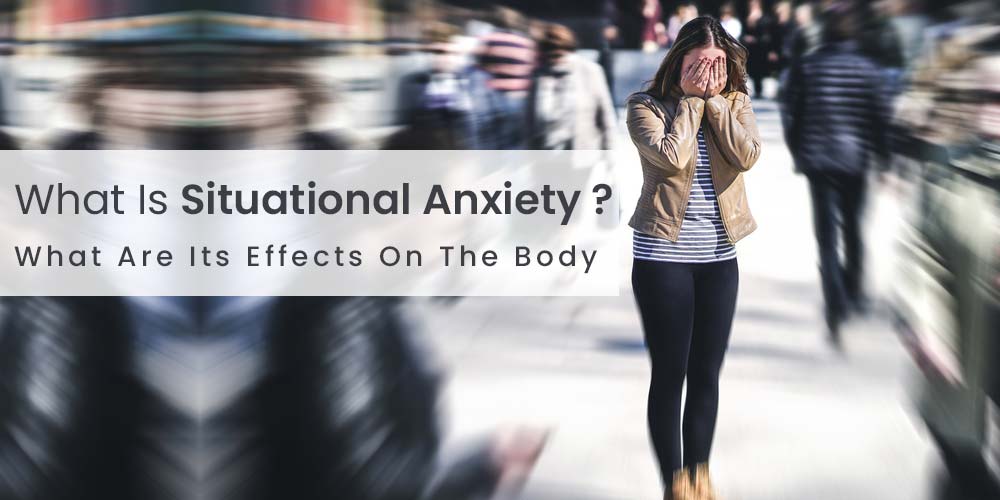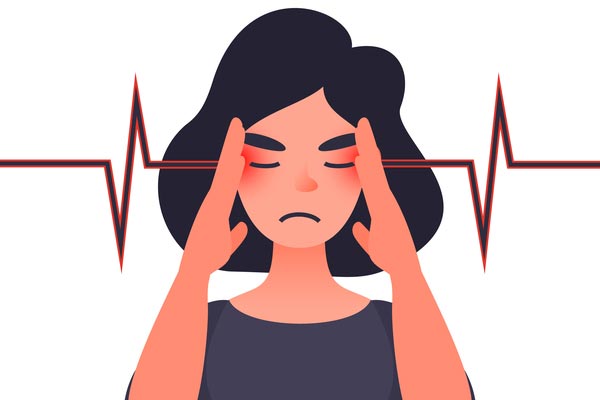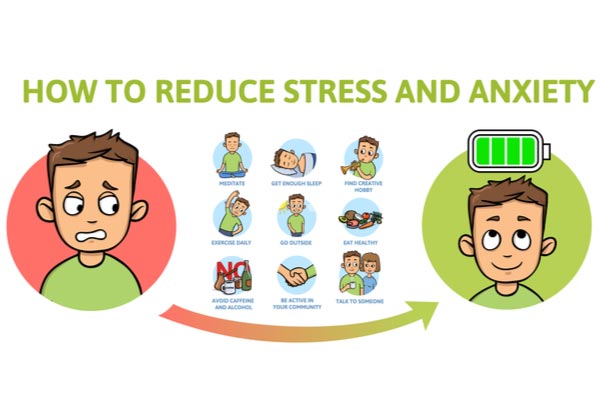
Table of Contents
Situational Anxiety
Situational anxiety is an anxiety disorder where the person feels miserable even during normal or an easy situation. A person suffering from this disorder often finds it difficult to cope with new circumstances, feel nervous and can also break into sweats. In many situations, the voice of the person becomes shaky while communicating with others.
A person dealing with anxious thoughts tends to feel out of place, all the time. They judge their words and actions too critically and end up feeling uneasy about themselves. To understand situational anxiety in a better and deeper way, you should know about the uncomfortable situations first.
The most common situations that cause anxious thoughts in a person are as follows:
- Speaking in front of many people
- Expressing opinion in a professional meeting
- Initiating a conversation with someone new
- Staying far away from home or comfort zone for even a few hours
- To be a team leader
- Change of place or job
- Minor disagreements
- Small problems in any relationship

All these circumstances usually seem to be normal for most of us. But, it is completely opposite for a person dealing with situational anxiety. For them, these situations are critical enough to make them run short of breath. Even the slightest of inconveniences caused in unfamiliar conditions feel like a never-ending tussle in their head.
The symptoms of Situational Anxiety include mental, emotional and physical aspects of the health as well:
- Forming of beads of sweat on the forehead
- Doubting self-worth
- Irritation and weariness
- Easily frightened
- A sudden increase in heartbeats
- Sudden pain in the chest
- Sweaty palms
How Anxiety impacts your physical health?
To ensure that you are in good health, your mind and body have to be in synergy. Mental conditions such as situational anxiety and depression disturb the harmony of health.
Here are the major impacts of anxiety on your physical health:
- Weakened immunity power of the body
- Frequent headaches
- Irregular sleeping patterns
- High blood pressure
- Sudden racing of the heart
- Cardiovascular disorders
These impacts often surface when we experience situational anxiety for a prolonged-time period. Understanding the underlying causes of anxiety is crucial to tackling the problem proactively.
Underlying causes of Situational Anxiety
Before seeking the right treatments for situational anxiety, it is necessary to be aware of the actual causes behind it. Here is an insight into the most common causes of this unhealthy mental condition:
Life Experiences
Going through tough and traumatic experiences in life leave a major impact on our brain. Sometimes the traumatic events alter the functioning of our brain and mess up with the electrical signals. Hence, it is necessary to address our fears and thoughts. Seeking medical help is highly recommended rather than facing the problem alone. (Also Read: Can Lifestyle And Psychological Factors Cause Erectile Dysfunction? )
Medical Conditions
If a person faces a critical medical condition that causes him stress, it contributes to anxious thoughts. Going through a serious illness creates a major physical and mental discomfort where being positive seems difficult. Even the side effects of some medications are reported to be a cause of anxiety by the doctors.
Day To Day Life Factors
A person’s company or his surroundings deeply influences his behavior and thoughts. If a person is constantly surrounded by negative situations, it results in negative influence in their brain. Dealing with hardships in a relationship or a job, in the long run, can also make it difficult for a person to keep their vision positive.

How to cope with situational anxiety?
Once the underlying causes of situational anxiety are identified, start taking steps to get rid of it. The journey might not appear easy, that is why try to stay mindful in the present. Detach yourself from the worrisome thoughts and try the following steps to get rid of situational anxiety.
Get in touch with a doctor
Feel no stigma in consulting a professional to discuss your condition of heightened stress or anxiety. The doctor will surely help you in understanding your problem better and you will feel relieved to be in safe hands.
- Set a daily routine
Include light exercises, brisk walk, and yoga in your daily routine. Eat healthy meals. Set feasible tasks for yourself every day and appreciate yourself after achieving them.
Get the stress out of your system
Write your stressful thoughts on a piece of paper and tear it down. This takes the heavy and negative emotions out of your system. Maintain a daily journal and write down the things and events that make you feel happy and excited. (Also Read: 15 Simple Things That Can Help You Relax In The Office )
- Positive self-talk
Start your day with affirmations or positive self-talk. This boosts your confidence and gives you a motivation to begin your day with a positive mindset. Stressful or anxious thoughts subside when you talk positively about yourself with you and others as well. - Meditation
It is one of the best methods of ensuring a holistic approach to good health. Begin with meditating for 10-15 minutes every day and gradually increase the time every week. Initially, meditation seems tough as troublesome thoughts start rushing in. You can use soothing music to focus better on meditation. Meditation allows you to detach from stress and simply observe the trail of thoughts. It can do wonders for your health by rejuvenating you. (Also Read: Yoga Poses For Every Woman )
These practices are simple to follow and will bring about a great change in the way you see life every day.
Also Read: The Holistic Relation Between Yoga And Meditation









